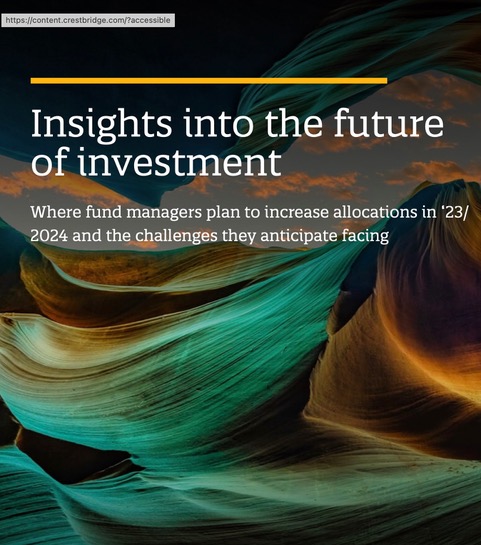Insights
Report
CAMMI Report Highlights Resilience and Opportunities in Real Estate Amid Economic Shifts
Updated on: July 9, 2025
The latest Crestbridge Alternative Managers' Mood Index (CAMMI) indicates a prevailing optimism among real estate managers, who are expected to largely maintain their asset allocations within the sector for 2024, despite the challenges faced last year.
This sentiment is reflected in Crestbridge's latest CAMMI score for Real Estate and Infrastructure, which asks asset managers how they intend to treat their asset allocations over the next 12 months - whether to decrease, increase or maintain them. The Index score fell to 42.86 in December 2023 from 50 in March 2023, recording a slight drop of 7.14 points, suggesting a contraction in the asset class but overall stability.
Dean Hodcroft said: "Despite last year's dual challenge of rising interest rates and pressure on real estate prices, the sector showed remarkable resilience. This year, with interest rates flattening off and the forward interest rate curve trending downwards, we're entering a phase that could reinvigorate the market. This new environment, coupled with valuation stresses, may create a more favourable leverage scenario, enticing buyers and helping the refinancing markets.
"Amidst the headwinds, the real estate and infrastructure sectors are finding new paths to growth. The agility and deep market understanding of managers are key in this environment. While some traditional asset classes are under pressure, dynamic sectors like e-commerce logistics, adaptable office spaces, and life sciences are gaining traction. It's this adaptability and resilience that will chart the course for real estate's future."
Real estate is among several asset classes to contract in sentiment in the latest CAMMI report, taking the overall CAMMI score across all Crestbridge's alternative asset classes to 42.37.
Despite challenges, the real estate sector is not without its bright spots. Operational efficiency and regulation & compliance are also high on the agenda for real estate managers. The report also notes concern for talent management has lessened amongst managers, suggesting a shift in priorities towards operational savings over team expansion.
About the Index
Crestbridge's Alternative Managers' Mood Index (CAMMI) is an index of the prevailing direction of allocation trends in private equity and in real estate. It consists of a diffusion index (an advance/decline measurement) that summarises whether allocations for each sub-asset class, as viewed by fund managers, is increasing, staying the same, or decreasing. The purpose of the CAMMI is to provide information about the current and future asset allocation sentiment of various asset and sub-asset classes to the market.
The headline CAMMI is a number from 0 to 100. A CAMMI above 50 represents an allocation increase when compared with the previous month. A CAMMI reading under 50 represents an allocation decrease, and a reading at 50 indicates no change. The further away from 50 the greater the level of change.
About the Participants
Around 40% of CAMMI participants are well in the territory of the top-500 largest firms in the global fund management industry by assets under management. There is a good split between large, mid-market and smaller fund managers, but data will skew away from the smallest managers with less than $100m in AuM. Overall, we believe CAMMI provides an excellent range of opinions in the market.
Respondents heavily skew towards those whose latest fund were domiciled in Europe (80%), but a significant proportion - a quarter - of respondents cited North America (25%) as their latest fund domicile. The remainder make up Rest of world (10%), but none of which were domiciled in Asia.
Respondents' firms ran multiple core strategies. Once again there was a good split between the major strategies of Growth (24%), Private Debt (21%), Buyout (16%), Real Estate & Real Estate Debt (18%), Venture Capital & Debt (11%) and Secondaries/Fund of Funds (11%)*.
Over half (55%) of our participants are C-suite and directors of investment within fund management firms, i.e. those who are materially responsible for asset allocation decisions as well as all the other decisions about running the firm. Less than half (45%) of participants held other titles and whose roles might include allocation decisions, but not necessarily.
The survey was taken anonymously by respondents.
*Numbers may not add up to 100% due to rounding
Published on: April 12, 2024
Explore Insights

Gen II Fund Services, LLC
1675 Broadway, 4th Floor
New York, NY 10019
212-408-0550
info@gen2fund.com
General Inquiries:
888-GEN2-001
Press Inquiries:
North America: tfaust@stantonprm.com
Europe: dan.jason@wearematerialimpact.com
Report Personal Data Breach >




